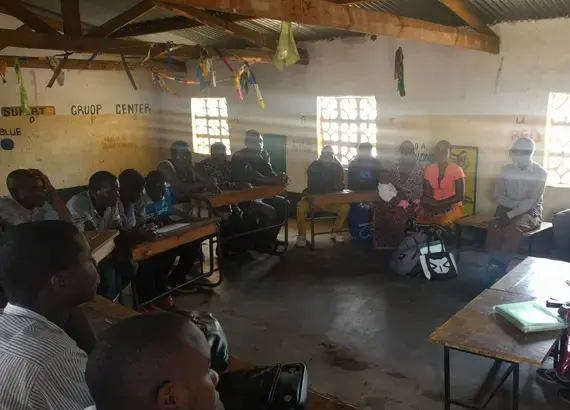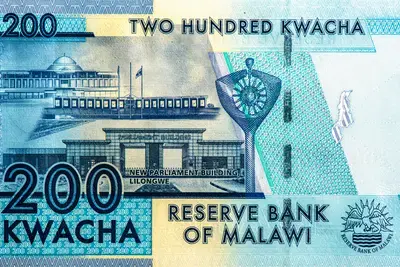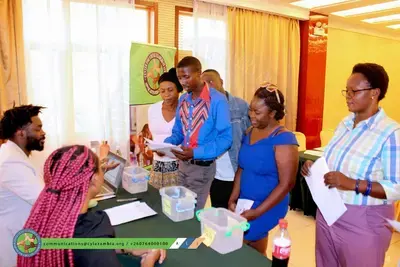
International Group Association (IGA) Accountability Club discussing health monitoring in Lilongwe Rural
Success Story
Accountability Clubs Work to Improve Service Delivery in Malawi
Malawian civil society organizations are promoting local government accountability through advocacy campaigns to improve development and service delivery in rural communities. Through the creation of accountability clubs, small local networks consisting of community activists and ordinary citizens are responsible for identifying local needs and pressuring leaders to respond to citizens’ concerns. Among the issues many of these clubs have focused on is improving health service delivery in rural communities.
Access to adequate healthcare and medicine is limited in Malawi. This is particularly true in the country’s rural areas, which often lack public hospitals or clinics. Even when facilities are available, they support patients from surrounding communities and are often vulnerable to drug stockouts and high turnover due to the high demand for these services. Drug theft also places enormous strain on local health facilities in Malawi, accounting for the loss of over $11 million USD annually. This deficit further reduces the funds available for health services, leading citizens and health practitioners alike to seek alternative methods to find medication.
In the fall of 2016, NDI launched a pilot drug monitoring initiative with five civil society partners in collaboration with the Malawi Ministry of Health Internal Auditor’s Office as well as the Ministry of Local Government and Rural Development. Through this initiative, NDI’s partners trained 29 accountability clubs and ward councilors on how to properly identify, report and respond to mismanagement and misuse related to the delivery, receipts, stock and dispensing of drugs. Each accountability club practiced proper inventory verification methods and examined several common drugs to learn how to identify them correctly. Once trained, these clubs conducted drug management monitoring visits at health facilities in their local communities.
Citizen vigilance and the establishment of new channels for reporting malpractice have increasingly deterred health workers from selling drugs illegally. Accountability club engagement and oversight in drug monitoring have been critical to seeking redress for illegal drug sales. The clubs have also noted that facilities are increasingly opening on time and treating patients with more respect. For example, in Demela ward, the clubs followed up on the shortage of drugs at Nsalu clinic, which led to the arrest of a businessman found in illegal possession of the clinic’s medicine. Accountability clubs from Mtema in rural Lilongwe also assisted in the arrest of a shopkeeper who was found with government drugs and led to the arrest of a health surveillance assistant at Ngoni Health Center for being an accomplice. Altogether, the accountability clubs have documented over 11 instances of drug theft that are currently under investigation.
Through citizen accountability initiatives such as drug monitoring and public expenditure tracking, citizens have acknowledged greater confidence in holding elected officials accountable. Reflecting on the impact of the accountability clubs, One citizen in Mzuzu said, “Before we thought elected officials are our bosses, but now we can hold them to account.” Even local councilors have appreciated the project, many highlighting that it “keeps [them] on [their] toes” because they know they have to maintain transparency with their constituents. The project has also helped improve relationships between councilors and citizens. For example, elected officials and citizens have worked together to identify and prioritize community needs. Citizens’ ability to monitor the quality of service delivery and implementation of development projects in their communities is essential to democratic governance. Citizens, as one accountability club member noted, are speaking out and opening the “eyes and minds” of the government in Malawi.



